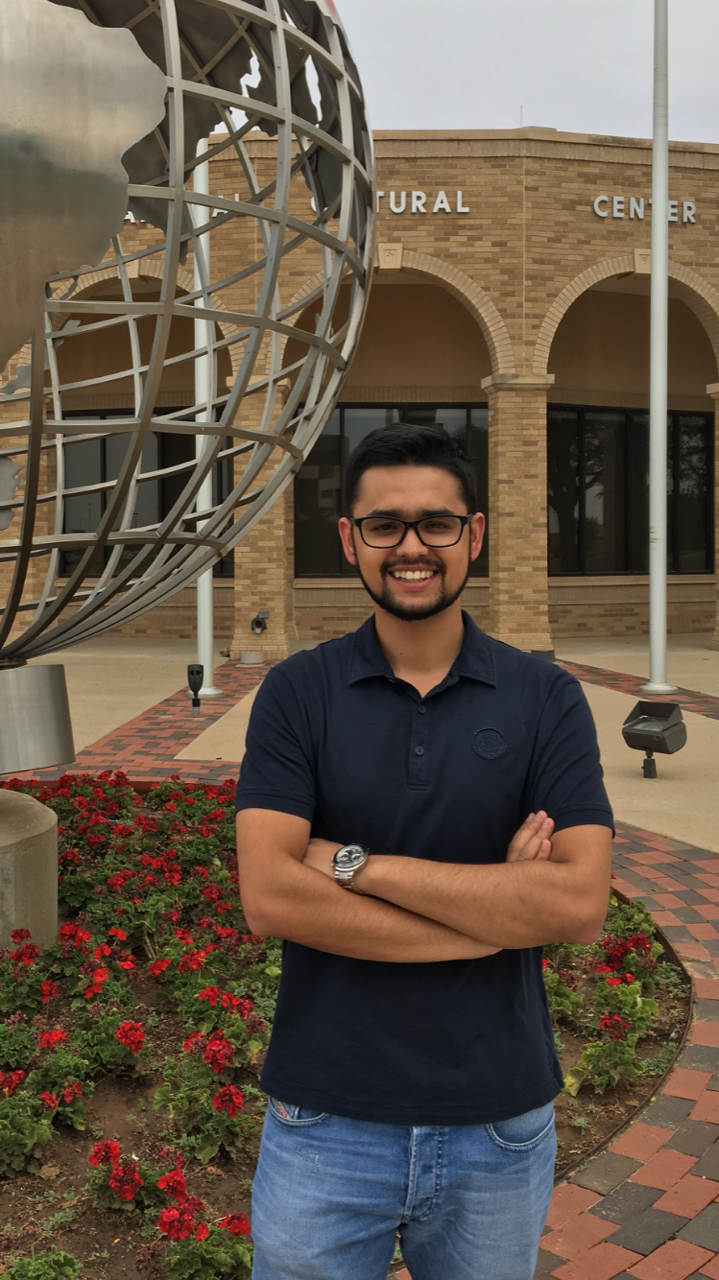Student Highlight: Barnan Lamichhane
STEM MBA Student - Rawls College of Business
In April 2015, a major earthquake hit Nepal. It was the worst natural disaster to strike Nepal since 1934 and it changed the life of Barnan Lamichhane, a STEM MBA student in the Rawls College of Business. At the time Barnan, who received a Bachelor of Electrical Engineering from Kathmandu University, was working in his family's hydropower business. The earthquake completely destroyed the temporary living quarters of the company's workers. To rebuild the concrete structures would take too long delaying the project deadline, so Barnan approached his dad with the idea of installing prefabricated buildings to house the workers. Using this type of building would be faster and less expensive, but there were no building manufacturers in Nepal. With his father's blessing, Barnan communicated with a business contact in China, who connected him with companies that could help. Barnan arranged to have the building materials shipped from China, but had to organize the assembly of the structures in Nepal. Through this experience, Barnan learned that he liked managing projects. Although he had strong technical and engineering skills, Barnan realized that he lacked the management skills to pursue the career he would like. He began to search for MBA programs on the internet and that's when he discovered the STEM MBA program at Texas Tech. Barnan's sister, who lives in Dallas, was familiar with Texas Tech and encouraged him to apply. Barnan was accepted and began the program in January of this year.

What do you like about your graduate studies at Texas Tech?
“There is a big difference in how I did my undergraduate degree in Nepal and how I am doing my graduate degree at Texas Tech. It's better here undoubtedly. You study what you can see here. We study current data, not something that happened ten years ago. The professors also talk globally. While I was in Nepal, I never used to think globally. Here the professors talk about companies from all over the world. That has increased my boundaries.”
How did you adjust to living in Lubbock?
“It was hard at first. Everything is so different. A simple thing like buying groceries is hard. Everyone here goes to Walmart and buys groceries for a week. To do that you need a car. Thankfully my roommate had one so that helped a lot. In Nepal, there are grocery stores everywhere. If you need a tomato, you just go outside your house and get one. Here I look out and I see nothing. There are restaurants and other stores, but no grocery stores.”
What would you like to do after you complete your graduate degree?
“I would like to open my own business. I don't know what that business will be, but I have been thinking and meditating about it a lot. I want to open a business that is going to change people's lives in one way or another – positively for sure. I used to think about this when I was in Nepal but it was local. Hopefully I can open something back in Nepal that is going to connect me to this place. I have met many friends here and I am getting to understand how they think. United States has an immense culture. Here I get to meet people from many different cultures which is exciting because I always learn something new.”
What advice would you give to other students who are thinking about studying in another country?
“I would say go for it without a second thought. It teaches you a lot. The one thing I love about this country is everybody values time and everything happens on time. The STEM MBA is a rigorous course and you have to keep up with your assignments. But in the end, it teaches you how to manage your time. Some lessons you learn here are not assignments in the course but they can be the most valuable. At times, what comes as a side product is more important to you than the course itself.”
What accomplishment you are most proud of?
“Cooking. I didn't know how to cook before I came here. I am very proud that I have learned to cook. When I make a meal for other people, they actually like it. When they say it is good, I feel happy about it. The people that I have met here are so nice and open. They are friendly and very welcoming. I was not expecting that.”
International Affairs
-
Address
601 Indiana Avenue, Lubbock, TX 79409-5004 -
Phone
806.742.3667 -
Email
oia.reception@ttu.edu
